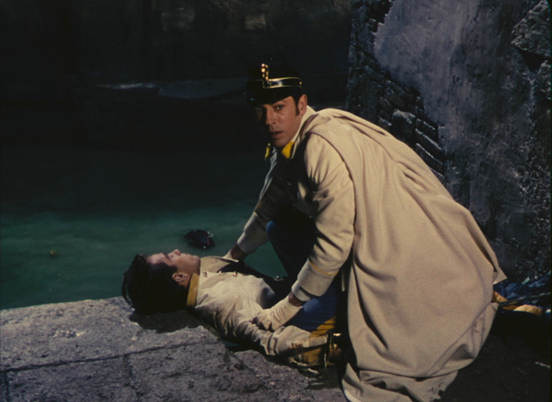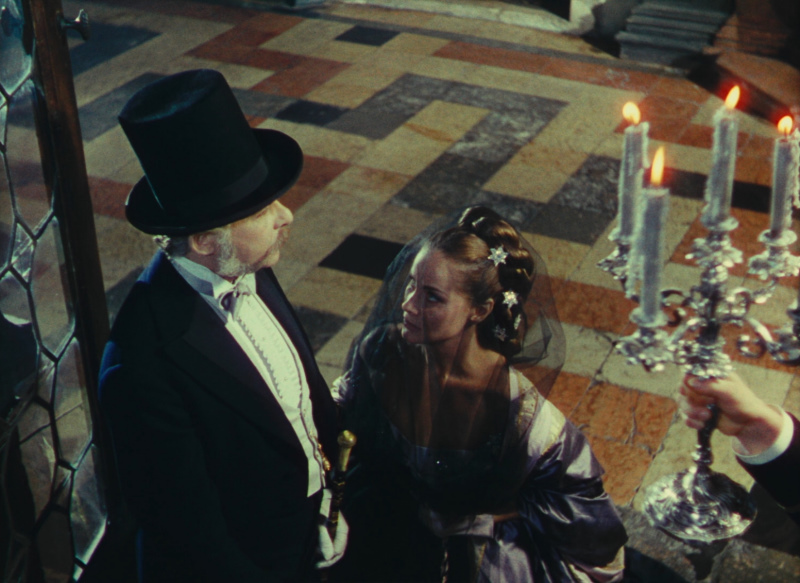 Luchino Visconti's Senso tells the tale of Countess Serpieri, nineteenth-century Italian woman who, during the Austrian occupation of her country, falls in love with the dashing Austrian lieutenant during a live performance of Il Tovatore. Putting her marriage, political beliefs, and coutnry on the line for her torrent love affair, Visconti uses the character of Countess Serpieri to tell a rather devastating meldodrama about the true power love and passion can have over our rationality. Featuring lush costumes, and art design, Luchino Visconti paints a lavish portrait of this neurotic Italian countess, subtely commenting on the naivity and neglegence that is often manufacted in the minds of the bourgeois. The performances in Senso are operatic in nature, especially by Alida Valli, whose portrayal makes one question this characters' sanity at times, deranged with lust to the point that she can't come close to recongnizing the Austrian lieutenant's potential double-cross. While not obvious from the very beginning, it becomes clear that the Austrain lieutenant's intentions are not based off love but seduction, using this woman's lust and warped love to his advantage. She is a woman who is completely blind to the reality that is right in front of her, lost more in the ideals of love than actually experiencing it. While not obvious from the very beginning, it becomes clear that the Austrian lieutenant's intentions are not based off love but seduction, using this woman's lust and warped love to his advantage. With its lavish art direction and vivid colors, Luchino Visconti's film is a pulsating romantic melodrama with devastating results, with the filmmaker being more interested in showing the destructive power of love.
0 Comments
Leave a Reply. |
AuthorLove of all things cinema brought me here. Archives
June 2023
|



 RSS Feed
RSS Feed
